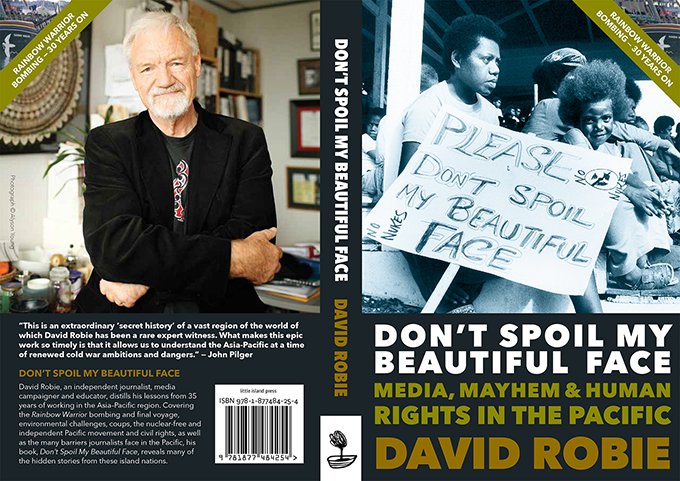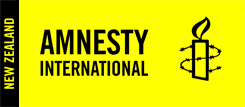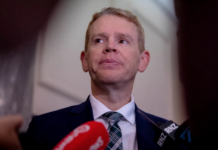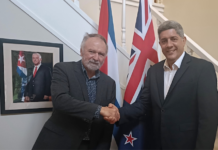
“Mainstream journalism has failed to communicate not only peace, but also human rights in ways that have the potential of illuminating the important nexus between them.”
– Media agenda-setting researcher and journalist Ibrahim Seaga Shaw
Before picking up David Robie’s Don’t Spoil My Beautiful Face: Media, Mayhem & Human Rights In the Pacific, I had to admit my knowledge of human rights issues and historical struggles in the Pacific region was somewhat patchy.
 Naturally, having taken Robie’s Asia-Pacific Journalism paper a few years ago at AUT University, I had some understanding of the ongoing independence struggles in Timor-Leste and troubled West Papua provinces. I knew snippets of the Fijian coups and post-colonial struggles in French Polynesia, but these were snapshots at best that had filtered through from the mainstream media.
Naturally, having taken Robie’s Asia-Pacific Journalism paper a few years ago at AUT University, I had some understanding of the ongoing independence struggles in Timor-Leste and troubled West Papua provinces. I knew snippets of the Fijian coups and post-colonial struggles in French Polynesia, but these were snapshots at best that had filtered through from the mainstream media.
First published in 2014 by Little Island Press, Don’t Spoil My Beautiful Face: Media, Mayhem and Human Rights in the Pacific (with a second edition out a few months ago with Rainbow Warrior tags on the cover) is journalist and media educator Robie’s tenth book and one of several written on the region’s political and media landscape spanning the 35 years he has worked as an independent journalist covering the Asia-Pacific region.
A strong advocate for media, environmental and human rights in the Pacific, Robie takes the reader through a number of serious and historical conflicts witnessed firsthand and shares abridged versions of articles written and published by both mainstream and independent publications including the New Zealand Listener, the now defunct Auckland Star and Pacific Journalism Review.
“The reader is immediately aware of the prickly political and colonial minefield that is the Pacific and the importance of a free press when it comes to ensuring basic human rights are upheld in the face of cultural unrest.”
Beginning with a preface by Tongan journalist and publisher Kalafi Moala, Pasifika Media Association deputy chair and former Amnesty International prisoner of conscience Kalafi Moala, the reader is immediately aware of the prickly political and colonial minefield that is the Pacific and the importance of a free press when it comes to ensuring basic human rights are upheld in the face of cultural unrest.
Often violent and always uneasy, we follow Robie chronologically beginning with his time as a young journalist working in South Africa for a daily newspaper championing human rights during the Apartheid era to his developing interest in France’s neocolonial and nuclear policies in the South Pacific, which leads him to the seriously under-reported colonial legacy conflicts in French Polynesia and the countdown towards the first of the notoriously politically unstable Fiji’s many coups during the 1980s.
Coverage of the 1984 Hienghene massacre in New Caledonia and the 1992 Santa Cruz massacre in Timor-Leste are just two of many sobering accounts contributing to the stain on the Pacific’s human rights record.
Why are these abuses and this political unrest within the Pacific still ongoing and what do we need to do as a neighboring nation to combat it? Robie believes one aspect of the solution lies with cultivating good quality local journalists, giving them the platform to tell their stories without fear of being censored, punished, beaten and even locked up for not towing the political line by speaking the truth.
“The reality is that we are living in a country where respected investigative journalists face public defamation and unlawful police searches for reaching further and exposing the truth.”
But is the treatment of journalists here in New Zealand really that far from the way our neighbours treat theirs? The reality is that we are living in a country where respected investigative journalists face public defamation and unlawful police searches for reaching further and exposing the truth.
If you take anything away from Robie’s book, it’s the importance of having a free and unbiased media. We need to look past the mainstream and support the tireless and often dangerous work of “development journalists” like Robie, Stevenson and Hager.
Everyone has the right to seek, receive and impart information and ideas without fear or interference. Without an independent media there is no transparency and without transparency, there is no freedom.
Having experienced imprisonment in his native Tonga for his role as a journalist, Kalafi Moala recommends this book to aspiring journalists in his preface. I would go one step further than that and say if you have any passion for human rights and a desire to educate yourself on the history of human rights struggles in our own part of the pond, please read this book. It will be 361 pages well-read.
Erica George is supporter relations coordinator of Amnesty International New Zealand. She is an AUT University graduate and was on Professor Robie’s Asia-Pacific Journalism course in 2010. This article was first published on the Amnesty International New Zealand website yesterday and has been republished with permission.










































